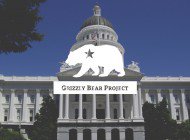In California and across the country, there is growing concern about poverty and income inequality. Already in the nascent 2016 election season, we’ve seen signs that a discussion about what can be done to help those in economic need could be a central part of this cycle’s political debate.
This is especially true in California, where a wide open U.S. Senate race could force class issues to the forefront. Such a campaign has the potential to be a watershed moment for Democrats in this state, as they debate proposals to cope with the realities of a state struggling to absorb waves of poor immigrants into a post-industrial economy.
But it will only happen if more serious Democratic contenders jump into the Senate fray.
More than 23% of the state’s residents live in poverty, according to a measurement that takes cost of living into account. California has more millionaires than any other state in the nation. We also have more people struggling to make ends meet.
This trend has increased over the last decade, but poverty has not been at the top of our political agenda. In California, economic discussions have been focused on budget stability as the state struggled to find its footing in the wake of the Great Recession.
Now, our budget is balanced — “precariously,” as Gov. Brown has noted. With the budget bleeding stopped, the plight of the poor is increasingly on the minds of politicians. Gov. Jerry Brown’s January budget included a section on addressing income inequality, and Brown, after being pressed by reporters, discussed the issues at length during his budget press conference.
Elections tend to bring issues into focus, and 2016 could be a boon for poverty talk – particularly a contested primary or general election between two Democrats. As the issue of diminishing economic opportunity continues to weigh on the state’s collective consciousness, next year’s Senate race could become, in part, a referendum on candidates’ ideas on how we can maintain economic opportunity in a changing state and evolving global economy.
Republican Neel Kashkari tried to raise the issue during the 2014 governor’s race, but Californians were understandably skeptical. It’s hard to take talk about poverty seriously from a political neophyte with Wall St. credentials. (For more on this phenomenon, see: “Romney, Mitt”).
The fact is, any California Republican entering the fray on poverty has to deal with skepticism that they are simply using the issue as a political cudgel to brandish against their Democratic political opponents. There is a perceived compassion gap that, fair or not, Republicans have to overcome when it comes to the politics of poverty.
But a sustained poverty discussion between prominent Democrats for an entire political season could change the tenor of the discussion, and play an important role in engaging and educating Californians about some of the most important and complex issues facing our state.
Billionaire Tom Steyer has made clear he would run for Senate as “a climate champion.” But an intra-party fight involving Kamala Harris and/or Antonio Villaraigosa would almost have to include a vigorous discussion over how California, and Washington D.C., should address the growing gaps between the haves and have-nots.
Harris has already hinted at the discussion in her opening campaign salvo, vowing to be a “fighter,” referencing the pressures of “stagnant wages and diminishing opportunity.” When Villaraigosa announced he was considering a run, he pointed out that “too many Californians are struggling to make ends meet, pay the bills, and send their kids to college.”
Such a debate would also add some needed complexity and texture to the poverty discussion. When Brown sparred with reporters on the issue earlier this month, it quickly became a discussion of the size of the state’s safety net. When Kashkari was pressed for his solutions in 2014, we got familiar GOP mantras about state taxes, regulation and the utopia of Texas.
A discussion of poverty should be about more than the size and reach of the welfare state, though that is an important piece. It’s more complicated than CEQA reform or high state income taxes, but it should include a discussion about how to grow the economy. It should also include a debate over what role government can and should play to address the larger-scale demographic, economic and policy shifts that are making it increasingly difficult for a growing number of California residents to thrive.
Win or lose, this would be Villaraigosa’s contribution to the 2016 Senate race. His entry would ensure a contested Democratic primary – something that’s long overdue in a state that hasn’t had an intra-party debate at the top of the ticket since 1998. There hasn’t been a fight for the heart and soul of the Democratic Party in more than 16 years, and not since the party seized absolute political control of California. And we have changed dramatically since then.
The lack of competition has delayed a public airing of issues under the Democratic Party tent. Political tensions between the economy and the environment, rich and poor, whites and Latinos, have been left to simmer amid Democratic dominance and a lack of political competition.
The debate between the parties has largely been settled in California. But the political turnover beginning in 2016 will allow for a much-needed public debate among Democrats about the state’s future. In a state where the majority those in poverty are Latino, GOP strategist Mike Madrid says Villaraigosa has the opportunity to change the way we think about race and class in California.
“Antonio has the chance to be the first to define a Latino agenda on the economy and poverty, not just so-called Latino issues like immigration,” Madrid said. “He could articulate an agenda for making sure the door to the middle class stays open for the millions of Latinos in this state who are at risk of never having the opportunity to move up the ladder.”
It may be Pollyannaish to believe that a political campaign can help foster a thoughtful political debate. But the 2016 race does present an opportunity for real leadership and progress. A discussion on poverty and the economy needs to be one that includes a diversity of interests, as we grasp for meaningful, sustainable solutions to some of our state and country’s most complicated and vexing problems.
That may only be possible in a race between two Democrats.
Here’s hoping that this political season is one in which the state’s leaders highlight the issue and put forward their best ideas about how to reverse the growing economic divide between haves and have-nots in our state.




